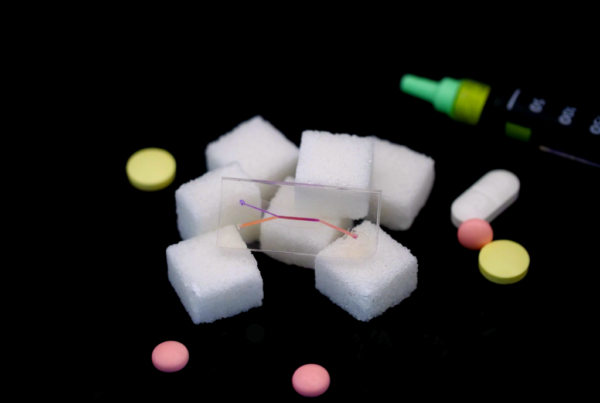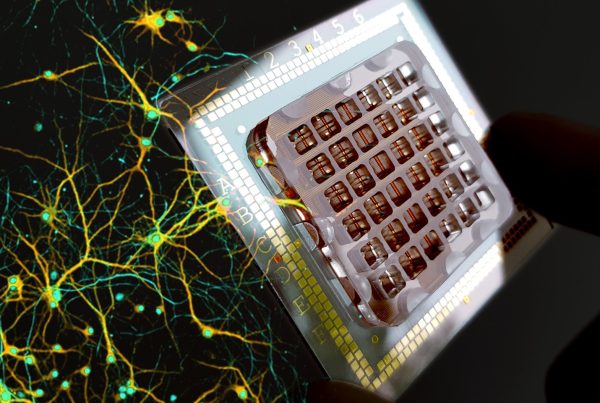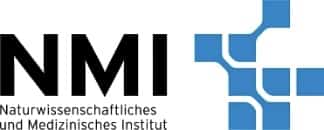µOrganoLab at the MPS World Summit & EUROoCS Conference in Berlin:
A conference exceeding all expectations
One week full of cutting-edge technology in microfluidics, workshops and discussions about Organ-on-Chip (OoC) systems, and outstanding presentations from speakers all over the world – this year’s MPS World Summit in Berlin, co-organized by the European Organ-on-Chip Society, EUROoCS, overwhelmed in all aspects.
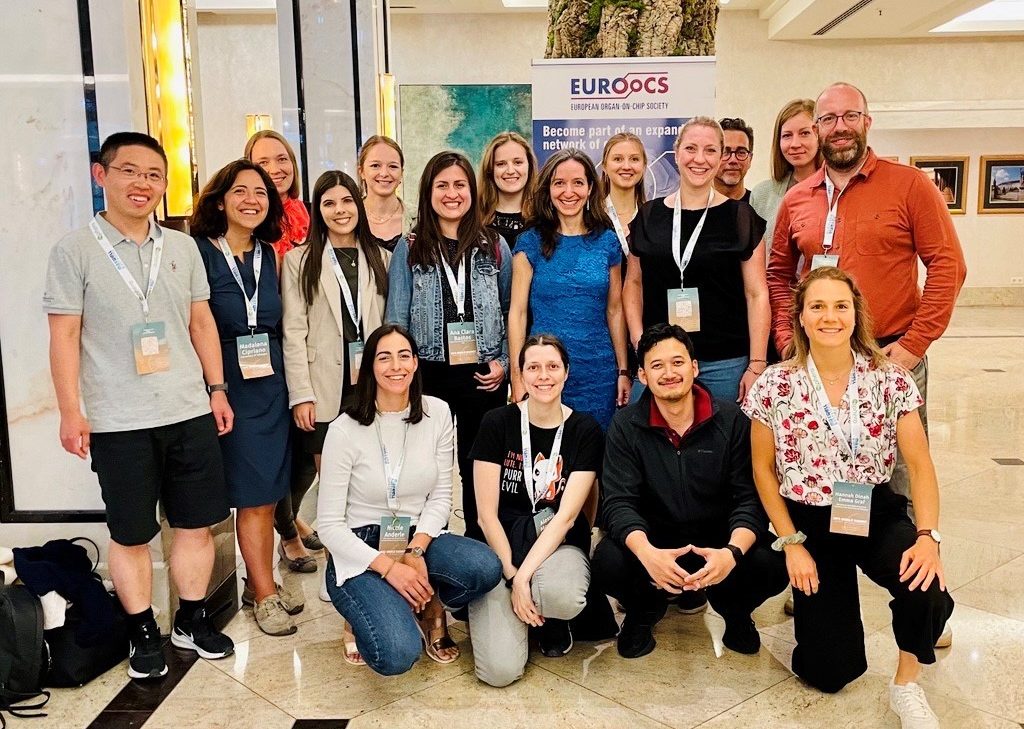 More than 1,300 attendees including various institutions and industry partners, 160 speakers and 560 posters provided international researchers with a wide variety of the latest OoC and MPS developments.
More than 1,300 attendees including various institutions and industry partners, 160 speakers and 560 posters provided international researchers with a wide variety of the latest OoC and MPS developments.
The extensive program was accompanied by hands-on workshops, round table sessions, and the EUROoCS Academy satellite event, a joint venture together with the , with lectures covering the whole workflow of an OoC starting at the underlying scientific idea all the way to MPS fabrication and finally the regulatory requirements and applications. Participants were introduced to all relevant aspects researchers have to take into consideration during the process.
Our µOrganoLab team presented our recent research progresses, had intense discussions and could network with renewed researchers to get new inputs and share expertise and experiences.
At the half-time of the conference, the legendary Macro Party brought the MPS family to one of the most popular and vibrant spots in the German capital – the “Badeschiff” at the Arena Berlin. We got to enjoy the sunny beach area, two riverside decks and, of course, the highlight, a floating infinity swimming pool in the Spree River. With cold drinks, a delicious BBQ and a stunning view at the Berlin skyline, our delegation could mingle and socialize in a relaxing atmosphere.
µOrganoLab Contributions
During the fantastic conference program, our team contributed four oral presentations and five poster presentations, sharing the most recent developments in our lab.
Oral Presentations
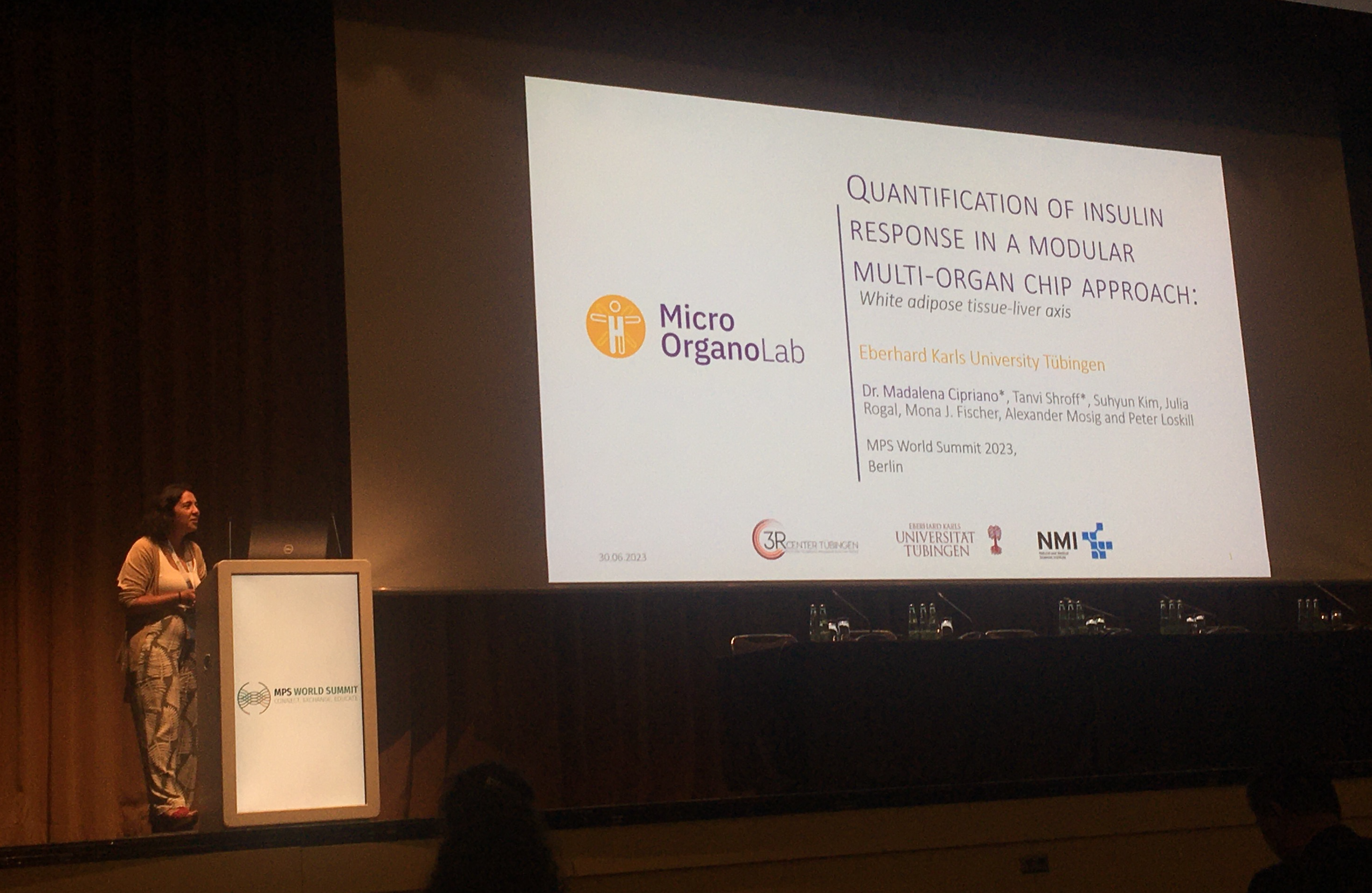
In the “MPS for Organ Interactions” session, Madalena shared insights into the and the quantification of insulin response in a modular Multi-Organ-Chip approach. She introduced our PDMS-free human physiologically relevant insulin resistance model that connects white adipose tissue and our Liver-on-Chip to enable the mechanistic understanding of personalized metabolism.
Claudia, as representative of our big immune-response-on-Chip team, talked about our advanced Tonsil-on-Chip system in “Immunology in the MPS” session. The Tonsil-on-Chip system is a powerful tool to evaluate differences in immune responses to existing and newly developed vaccines.
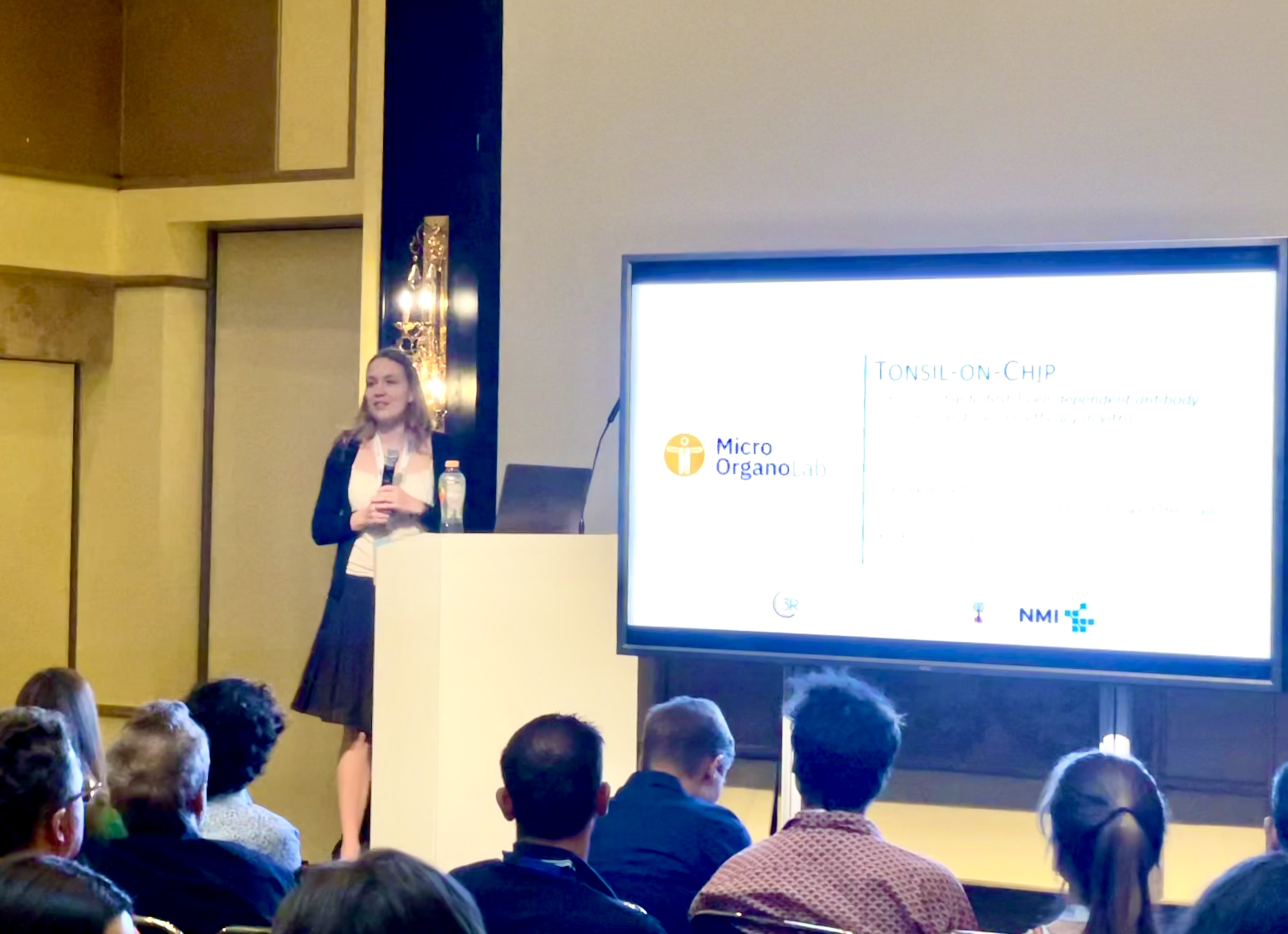
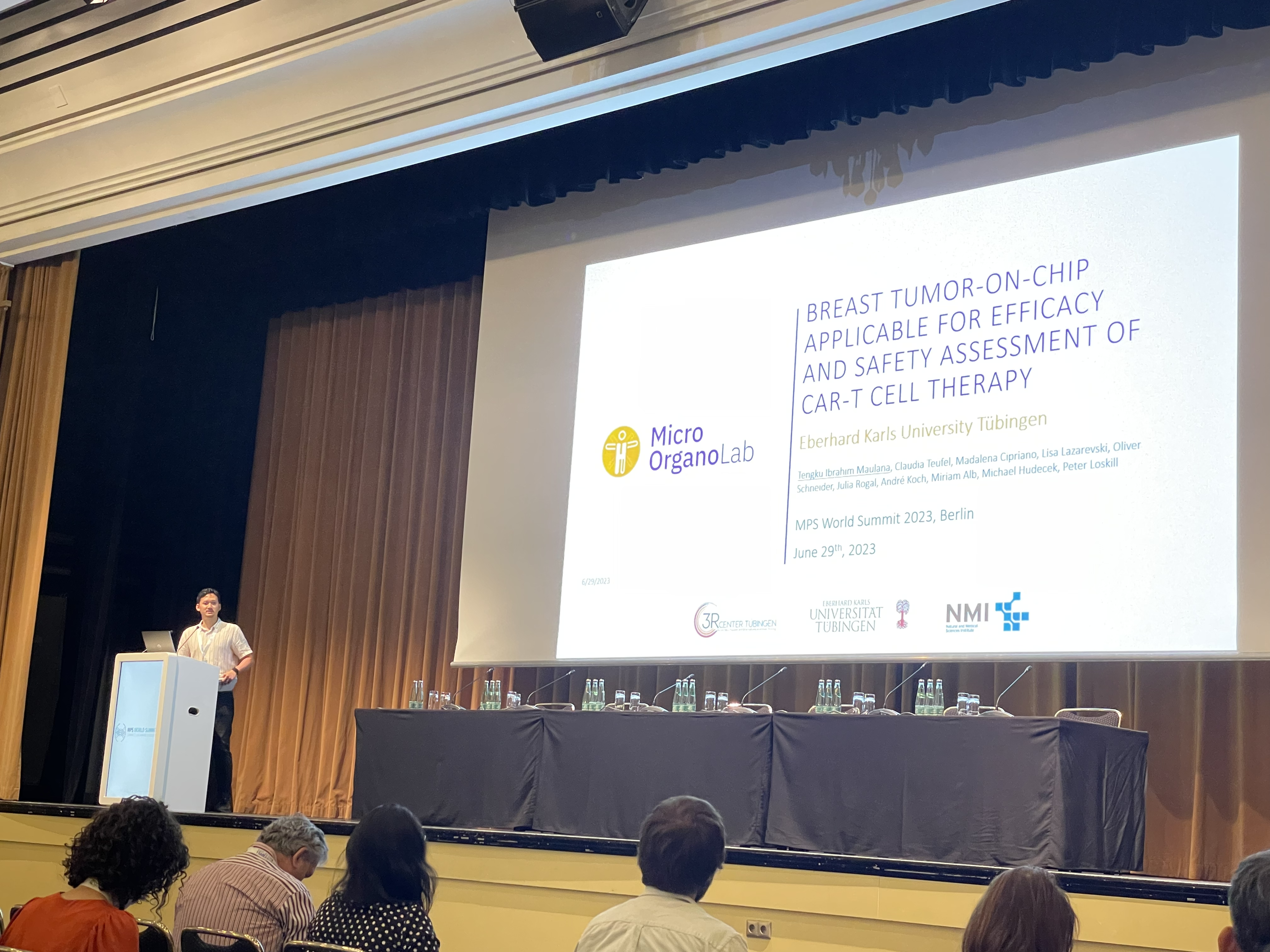
Ibra was active in the “MPS in Cancer Research” session. He introduced our specifically tailored chips, which allow the investigation of the efficacy and safety aspect of CAR-T cell therapy and recapitulate patient-specific response.
Especially exciting for us to see was that sex differences and women’s health were receiving the much-needed attention in this year’s conference program. Elena presented our work on Cervix-on-Chip models in the “Addressing Reproduction & Endocrinology with MPS” session. The developed Cervix-on-Chip enables physiological development of cervical cancer in vitro. Moreover, the tailored chip is a promising tool to gain knowledge in basic research and for the development of novel therapeutic options.
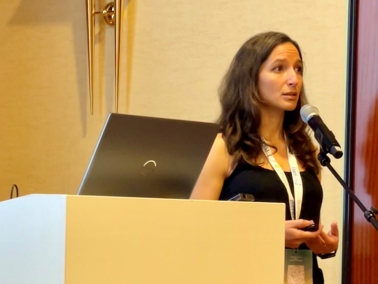
Poster Presentations
Paolo presented a poster on the novel innervation chip, which enables the investigation of specific aspects of cancer-neuron interactions. This system showcases electrophysiological analysis of 3D innervated tumor tissue in vitro and may open the door to a plethora of studies into understanding the effects of complex neuro-oncological crosstalk.
Ning shared the work on differentiation of iPSCs into neocortical neurons. He could show that iPSCs seeded in different hydrogels survive, proliferate and differentiate in a microphysiological platform. This reveals that careful tailoring of the cell’s microenvironment allows the generation of neocortical neurons in a microfluidic platform.
Julia contributed additional insights into our system to evaluate CAR-T-cell based cancer immunotherapy efficacy in vitro. This system encompasses different tumor models and a vasculature-like perfusion, which enables the study of immune-tumor cell interaction and provides a new platform for preclinical cancer immunotherapy studies.
Katharina presented a poster on our advanced microphysiological Pancreas-on-Chip platform. The presented platform is a promising tool supporting 3D tissue culture of pancreatic islet models, providing the opportunity for non-invasive real-time and in situ-monitoring of the tissue on-chip.
Hannah presented the development of a Multi-Organ-Chip platform allowing different OoC systems to be connected and being perfused by circulating immune cells. The multi-chip design follows the ISO standards and shows promise for future integration of mature organ systems, their complex (immune-)interactions and sophisticated drug studies.
After five days of incredible MPS & Organ-on-Chip science at the MPS World Summit & the EUROoCS conference 2023, our team is overwhelmed by the progress this inspiring community has made, and we‘re looking forward to seeing all of you again next year at the EUROoCS 2024 (Milano, Italy) & the MPS World Summit 2024 (Seattle, USA).
Paolo
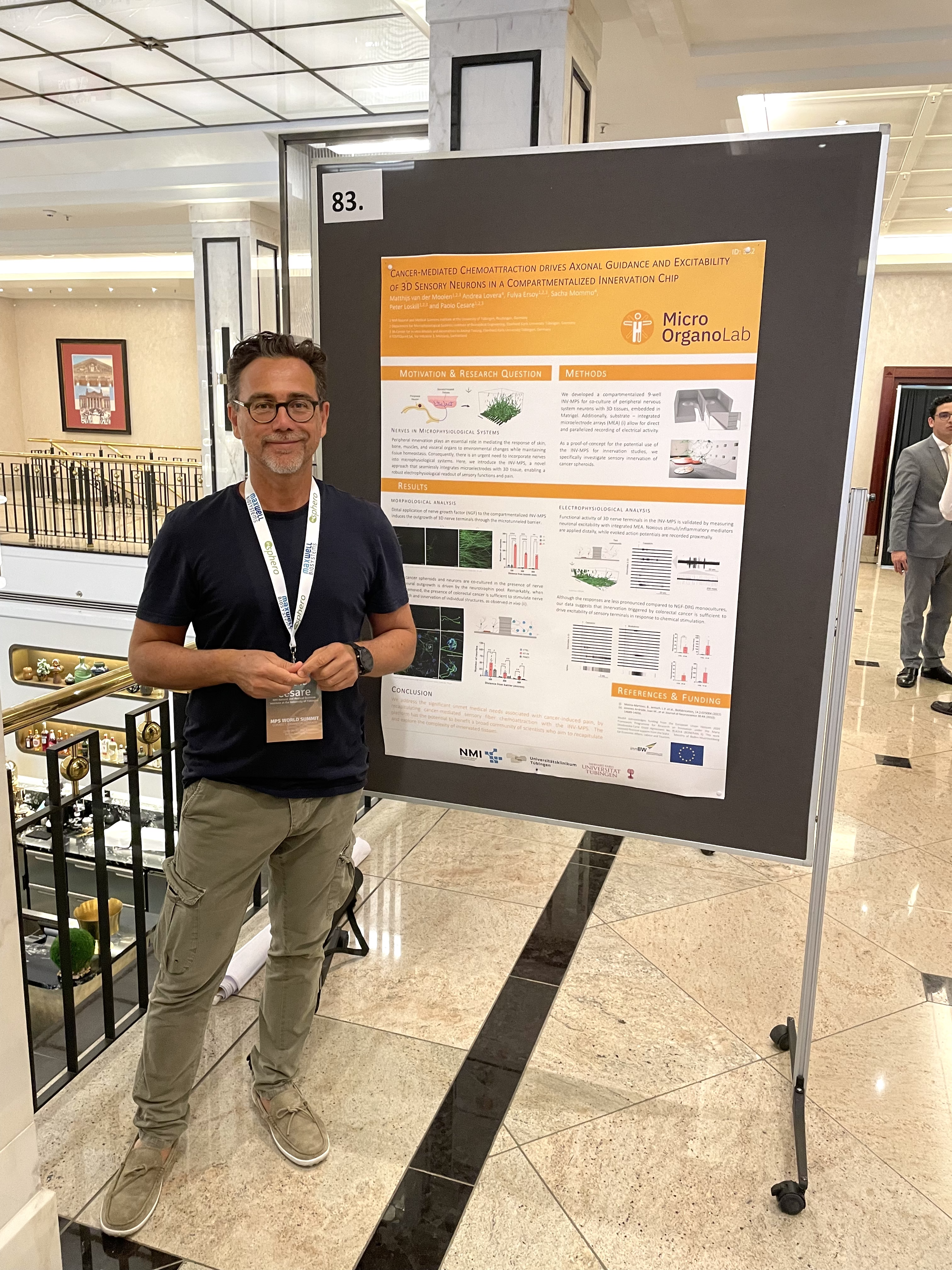
Ning
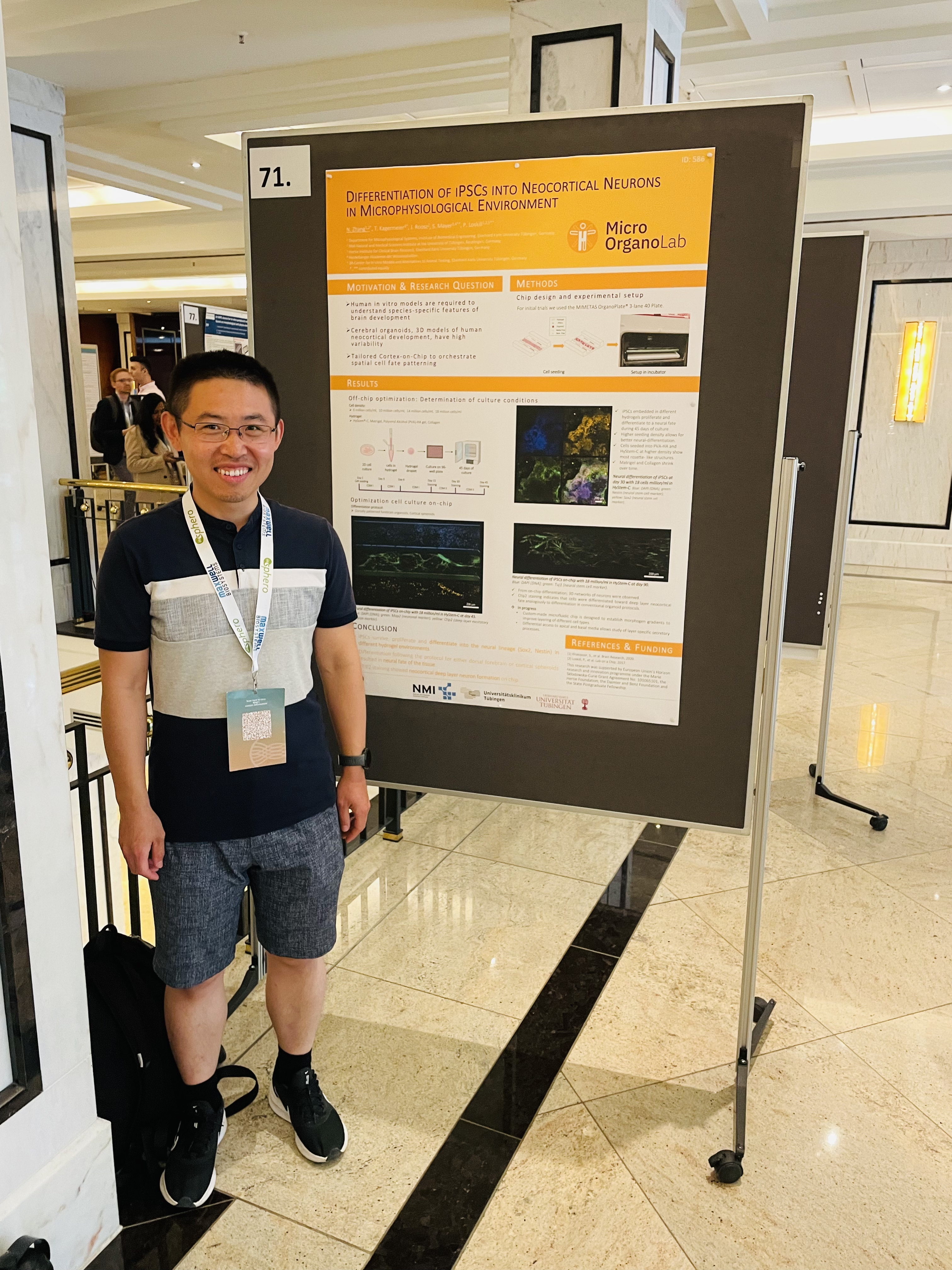
Julia

Katharina
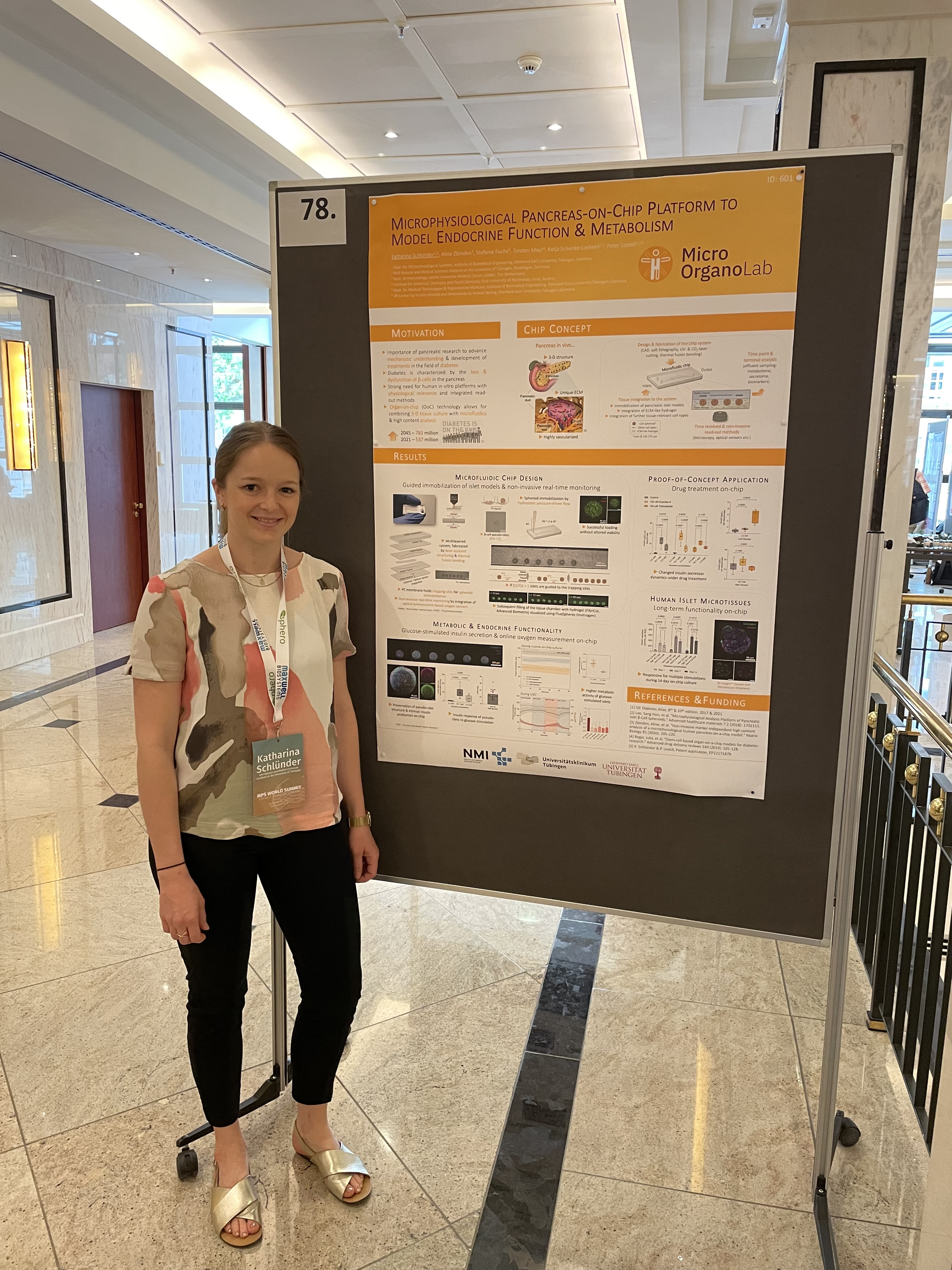
Hannah





